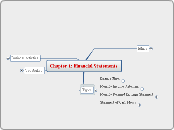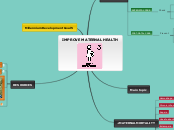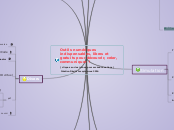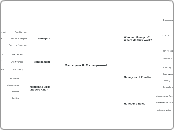MY CONTEXT LISTS
READ / REVIEW
"Review" Workflow
Allows me to choose what I want to review and whether I want to listen to it or read it.
List of everything I want to learn or review by a specific date.
UPCOMING EXPENSES
"Upcoming Expense" Workflow
A quick way to add non-recurring bills or expenses to the list.
Sorted list of all
upcoming expenses.
CALLS
"Calls" Workflow
It automatically calls the next number on my list.
List of calls I need to make.
PUBLISHING
"Publishing" Workflow
Starts the corresponding actions that will get the draft to the next stage of the process.
Choose from the drafts on the publishing list.
List of all the content we're working on
and its stage in the Publishing Process.
"Sprint" Workflow
Goes through the agile product development "Sprint Planning" process.
List of all my product development tasks.
"Brainstorming" Workflow
Creates a new project based on the answers.
Goes through the
"Natural Planning Model."
List of all my projects that still need to be planned.
FROGS
"Frogs" Workflow
Removes the barriers to procrastination.
Goes through my Frogs list and starts the pre-planned next action for each.
List of the tasks I HAVE
to get done today.
INBOX
"Process" Workflow
Goes through every item one-by-one using the "Getting Things Done" processing method.
List of every task in my world that requires organization, planning, or action.
Each of these categories requires unique states of mind and resources.
To maximize these resources, you need to put them in the proper context.
Productivity is the result of 3 factors working in harmony.
The Path to Total Productivity
3 Simple Steps to do More with Less
CONTEXT
The time and space you use to do the work.
3 Steps to Contextualize Your Tasks
3. LEARN FROM YOUR RESULTS
TRUST YOUR EVIDENCE
Accomplish the things that matter most in your life.
Learn from your evidence.
Track your results.
Put your tasks in the proper context.
Assumptions are no match for hard evidence.
If I assumed 9-5 was the best time to work, I'd waste my most productive hours of the day.
DON'T TRUST YOUR ASSUMPTIONS
You do have to learn what it takes to accomplish what you really want in life.
You don't have to sleep 8 hours per night.
You don't have to be a morning person.
There's no "best" productivity strategy — only the strategy that works best for you.
2. SEE WHERE YOUR TASKS FIT
CREATE CONTEXT LISTS
You can schedule by time, location, or
even mood.
Create separate lists for each context.
REVIEW YOUR TASKS
Next, write down the context where each task on your list fits best.
Write down any and all tasks that need to be done in your personal and professional life.
If you have an iOS device, click on the icon to download my free "Add to Inbox" Workflow.
REVIEW YOUR TIMELINE
What can you get done even when exhausted?
When are you the most personable?
When are you the most creative?
When are you the most focused?
1. HONEST SELF-ASSESSMENT
LEARN, DON'T JUDGE
To help with objectivity, I recommend getting a self-awareness tool like RescueTime to help with this process.
You can't learn from facts you're not honest about, blame yourself for, or deny altogether.
CREATE A "RESOURCE TIMELINE"
Create a timeline like the one above that takes your energy, focus, and other productivity-related resources into account.
Rescuetime Graph showing my most productive times during the day.
REFLECT ON THE LAST 6-12 MONTHS
Was that the best context for the task you were working on?
What environmental factors came into play? Good or bad.
When did you accomplish it?
What did you accomplish?
RESOURCES
What you can use to accomplish those tasks.
Top 3 Resources
FOCUS
Helps you control your mental distractions and be more mindful of the present.
Improves your ability to handle environmental distractions without getting frustrated.
MINDFULNESS
To improve your focus over the long-term, simply notice when your mind wanders and bring it back to your current task.
Mindfulness is the ability to bring your full attention to the task at hand.
ENVIRONMENT
To improve your focus in the short-term, create a distraction-free environment.
Focus is principally about letting go of mental and physical distractions.
ENERGY
PURPOSE
Reminding yourself why the task at hand is worth the effort, will give you the energy to keep going.
There is no greater energy booster than purpose.
SLEEP
Consistency (a regular sleep routine) also
plays an important role in your productivity.
Quality of sleep plays an important role (a dark room is essential).
Quantity of hours is only one part of a successful night of sleep.
Sleep isn't as simple as "get 8 hours per night."
HEALTH
Taking care of your mind and body will increase the energy you have to take on tasks.
TIME
MONEY
Invest in skills and knowledge that will help
you work more efficiently.
Invest in assets that make money for you.
You can use it to invest in labor.
Money can buy you energy and focus, but the key resource it can buy you is time.
TIME MANAGEMENT
Sticking to the plan.
Knowing when to do it.
Knowing what to do.
HOURS WORKED
But to get things done, you have to put in the time.
Increasing hours worked does not necessarily increase productivity.
TASKS
What you need to do.
My Top 3 Task Categories
MINDLESS
ENTERING DATA
REVIEWING
ORGANIZING
CREATIVE
LEARNING
WRITING
PLANNING
FOCUSED
SALES
EDITING
PROGRAMMING
